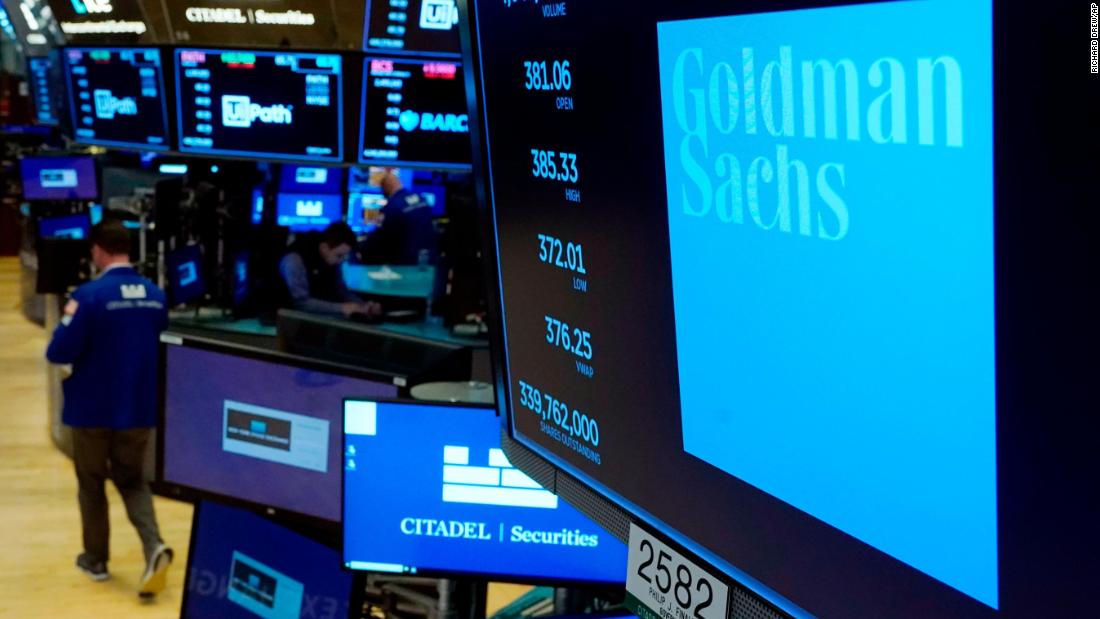This is how Russian companies suffer from international sanctions 2:46
(CNN Business) ––
Goldman Sachs and JPMorgan Chase are the first big Western banks to leave Russia after the invasion of Ukraine.
And other financial companies are likely to follow at a cost of billions of dollars.
Goldman Sachs said Thursday that it is closing "its business in Russia in accordance with licensing and regulatory requirements."
JPMorgan Chase, the largest US bank, made the same decision within hours, saying it is "actively" withdrawing its Russian business.
United States and European Union Nations Announce Expulsion of “Selected Russian Banks” from SWIFT
The moves come after Western banks scrambled to calculate their exposure to Russia, following President Vladimir Putin's order to invade Ukraine.
Which triggered punitive sanctions against most of the country's financial system, including its Central Bank and major commercial lenders, VTB and Sberbank.
The exits also follow a stampede of Western companies, from almost every other sector, out of the Russian economy.
Just when, in addition, the rating agencies warn that Moscow's debt default is imminent.
Russia's debt to international banks
Russian entities owe international banks more than $121 billion, according to the Bank for International Settlements, which suspended Russia's membership on Thursday.
European banks accumulate more than US$84 billion in total debt.
France, Italy and Austria are the most affected.
Meanwhile, US banks are owed $14.7 billion.
advertising
These are the countries where Russia has its reserves stored 0:51
Goldman Sachs previously revealed that it had a credit exposure to Russia of $650 million in December 2021. For its part, JPMorgan Chase said that its current activities in the country are "limited".
Other banks with more to lose could soon follow Goldman Sachs and JPMorgan Chase, and exit Russia.
Kremlin spokesman Dmitry Peskov on Thursday called Russia's economic situation "absolutely unprecedented."
And he blamed the West for an "economic war".
For his part, Putin on Thursday endorsed plans to seize assets left by Western companies by suspending or abandoning operations in Russia.
How the Russian invasion of Ukraine changed the world economy in a week
How much can they lose?
Earlier, Fitch Ratings warned that "the asset quality of large Western European banks will come under pressure in the aftermath of the Russian invasion of Ukraine."
In that sense, he added that their operations also face greater risk as they rush to comply with international sanctions.
French bank Société Générale said last week that it is "rigorously complying with all applicable laws and regulations" as well as "diligently implementing the necessary measures to strictly enforce international sanctions as soon as they are made public."
The company said it had almost $21 billion in exposure to Russia at the end of last year.
Société Générale "has more than enough protection to absorb the consequences of a possible extreme scenario, in which the group would be stripped of property rights over its banking assets in Russia," it said.
France's BNP Paribas reported on Wednesday that its exposure to both Russia and Ukraine stands at 3 billion euros ($3.3 billion).
Italy's UniCredit, which has operated in Russia since 1989, said last week that its Russian arm was "very liquid" and "self-funded".
And added the franchise represents only 3% of the bank's income.
On Tuesday it said its exposure to Russia stands at about 7.4 billion euros ($8.1 billion).
Credit Suisse said Thursday that it has an exposure to Russia of 1 billion Swiss francs ($1.1 billion).
Deutsche Bank said in a statement Wednesday that it has "limited" exposure to Russia, with a gross loan value of 1.4 billion euros ($1.5 billion).
The German lender explained that it has significantly reduced its exposure to Russia since 2014, with new measures taken in the last two weeks.
Russia admits its economy suffers "hard hits" as isolation increases
US banks also face consequences for situation with Russia
US banks could also face consequences.
Citigroup revealed last week that it had roughly $10 billion in total exposure to Russia.
Mark Mason, the bank's chief financial officer, shared with investors that the bank has run tests to assess the consequences "under different stress scenarios."
And he added that the bank could lose about half of its exposure in a "serious" scenario.
Citi said on Wednesday that it would stick with the plan to exit its consumer banking business.
But she acknowledged it could be very difficult to find a buyer given the political and economic climate.
"As we work toward that exit, we are operating that business on a more limited basis given the current circumstances and obligations," he said in a statement.
"With the Russian economy in the process of being disconnected from the global financial system as a result of the invasion, we continue to assess our operations in the country," he added.
ANALYSIS |
The West's $1 Trillion Bet to Collapse Russia's Economy
The European Central Bank addressed the risk to the banking sector on Thursday.
In that sense, he said that Europe's financial system has sufficient liquidity and there were limited signs of stress.
"Russia is important in terms of energy markets, in terms of commodity prices. But, in terms of exposure of the financial sector, of the European financial sector, Russia is not very relevant," said Luis de Guindos, vice president of the Central Bank.
“The pressures and tensions that we have seen are nothing comparable to what happened at the beginning of the pandemic,” he added.
BanksDebtRussia invasion of UkraineSanctions

